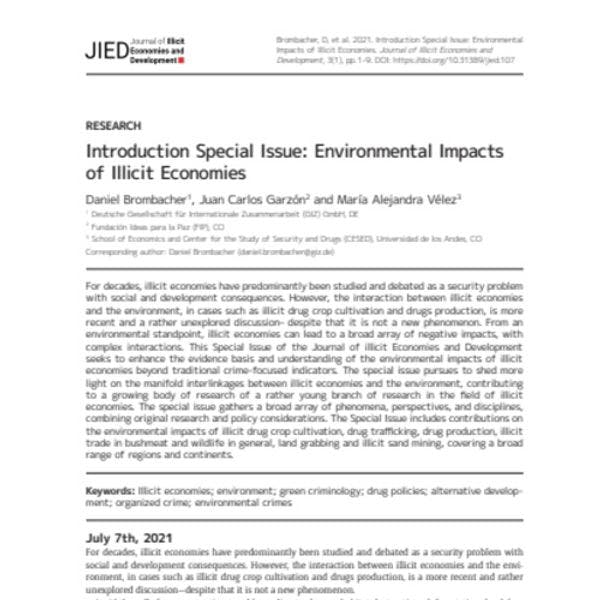Introduction special issue: environmental impacts of illicit economies
By Daniel Brombacher, Juan Carlos Garzón, María Alejandra Vélez
For decades, illicit economies have predominantly been studied and debated as a security problem with social and development consequences. However, the interaction between illicit economies and the environment, in cases such as illicit drug crop cultivation and drugs production, is a more recent and rather unexplored discussion—despite that it is not a new phenomenon.
Amid the calls for urgent action to address climate change, habitat destruction, deforestation, land degradation and the extinction of species, illicit economies emerge as one of the keys yet understudied push factors for these challenges. These are global problems that affect all countries to a certain degree, but especially states affected by fragility and instability in the global south.
Illicit economies tend to be intertwined not only with other illicit economies but also with licit economies and value chains. The different levels of prohibition applied to different sets of illegal value chains directly affect the potential consequences on the environment, nature and the climate.
In some countries there is evidence of a close relationship between drug economies, land use change for extensive agriculture, and livestock farming, exacerbating the environmental harms of both the illicit and licit value chains (See for example the work by Tellman et al. and Davalos et al. in this volume). While the nexus between illicit economies, armed conflict, insecurity, and violence is well studied, this is not the case for the manifold relationships between illicit economies and the environment and the linkages among them. The need for evidence on the more complex nature of the nexus between illicit economies and the environment is also eminent in policy debates on the issue. While the general interest in the potential environmental harms of illicit economies has grown with the pace of the evolving global debate on climate change and biodiversity, the debate is frequently based on anecdotical insights and single-case studies, lacking comparative evidence or cross-cutting empirical analysis.
